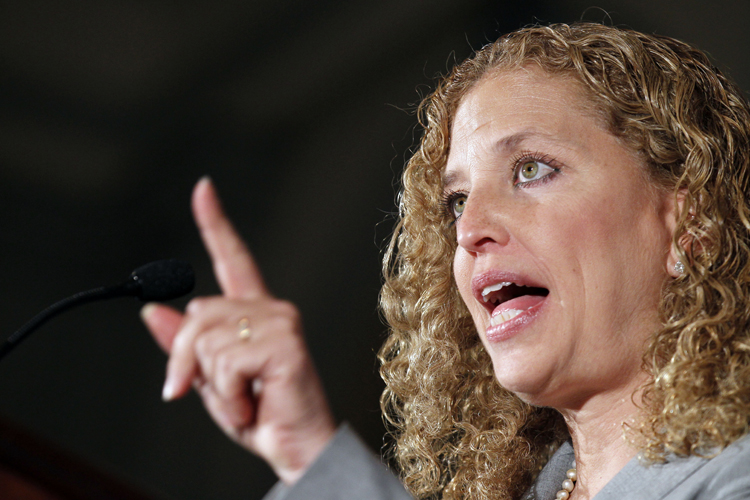Because Congress is hilarious, the House plans to vote today on a ~1,600-page government funding bill for the rest of the fiscal year that negotiators finalized approximately 40 hours ago. Its passage is far from a sure thing: the GOP whip team estimates that it will be able to provide about 150-175 votes, leaving Democrats to supply the rest. This puts Democrats in a tight spot: They don’t want to risk losing the gains they made in negotiations by letting the bill fail, but they’re also not pleased with certain riders — especially the ones that gut campaign finance restrictions and the Dodd-Frank financial reform law.
Democrats are suggesting that there’s still time to get the bill altered, but Republicans are fairly insistent that what we see is the final product.
Might we suggest that, at least regarding the loosening of campaign finance rules, the Democratic Party might just be fine with that? That certain Democratic negotiators may have even signed off on the change, and what we’re getting now is a show?
The change in question would dramatically increase (by about 8x) the amount of money that individual donors can give to parties per cycle. As the Washington Post’s Greg Sargent reports, Democratic National Committee chairwoman Debbie Wasserman Schultz is allegedly outraged, but also won’t take a firm stand on whether the DNC welcomes or rejects the change. The congressional fundraising wings of the party are also staying mum:
Meanwhile, a senior House Dem aide tells me that Democratic National Committee chair Debbie Wasserman Schultz was overheard this morning loudly complaining that she had not been consulted about this provision, and that she was left out of the loop. But the DNC is not saying whether it supports or opposes the provision. And there’s been no comment from the DSCC or the DCCC.
This is the same sort of deafening silence — or even on-the-DL support — from Democratic Party HQ that we heard following the McCutcheon Supreme Court decision earlier this year. That ruling also effectively lifted caps on the amounts parties could raise from donors per cycle, and paved the way for the change Congress may be about to make.
There are a couple reasons for Democratic Party leaders to be quietly rooting for, or even pushing, these changes.
Anything that strengthens the party’s ability to compete among donors with the flurry of unaccountable, post-Citizens United outside groups is taken as a victory. Super PACs, so far, have been more of a problem for the Republican Party than the Democratic Party — they’ve helped prop up the campaigns of nutcase candidates who’ve ruined several winnable elections for the GOP. The same dynamic hasn’t quite taken hold within the Democratic Party yet, but the DNC wants to be prepared for when it does.
But another big reason for why the parties want more cash right now: their presidential conventions. This is sort of a classic Congress story.
Earlier this year Congress passed, and President Obama signed, a law called the Gabriella Miller Kids First Research Act. It increased funding for pediatric research by about $126 million. And how did it offset that cost? By eliminating (optional) taxpayer funding for presidential conventions, which previously had covered about 23 percent of the costs. That creates a big old hole in the parties’ budgets, and so now the parties need yet another opportunity to scrap away at campaign finance restrictions. Kids first!
The parties and their top fundraisers are going to love this change. You may have noticed that while rank-and-file Democrats are raising hell over the provision, Harry Reid has expressed some support for the bill. That’s because he and John Boehner were the ones who put this in the package.
The Democratic Party isn’t as unified on eliminating this change as it makes itself out to be.

